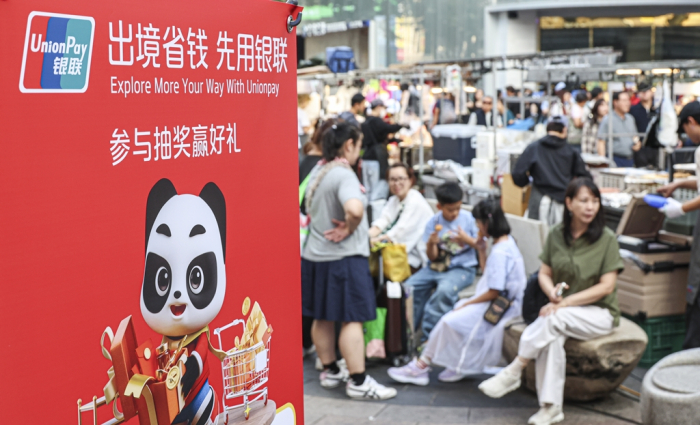
The chatter of Mandarin voices filled the air in central Seoul on Monday as retailers welcomed the first wave of Chinese group tourists allowed visa-free entry since the COVID-19 pandemic.
By mid-afternoon, Lotte Duty Free’s Myeongdong flagship outlet was heaving with shoppers.
More than 1,700 visitors from Tianjin, arriving on the Dream cruise liner, descended on the store to stock up on Korean goods.
Older travelers carted away boxes of red ginseng and vitamins – favorites among many foreign visitors to Korea. Younger groups queued at counters for K-beauty staples and trendy labels, such as MLB and Gentle Monster.
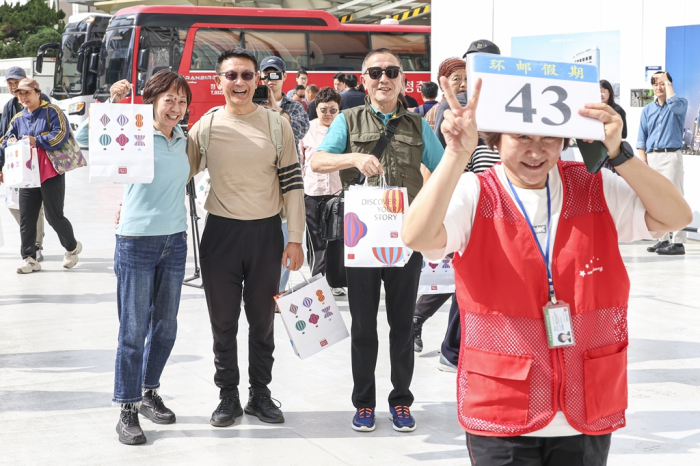
“I’ve always followed Korean beauty brands, so coming here is a must,” said Lin Che, a 37-year-old first-time visitor, clutching a bag of cosmetics after stops at Gyeongbok Palace and Myeongdong.
The bustle and hustle of Chinese tourists come as the Korean government has allowed visa-free entry for tourist groups from China starting Sept. 29 through June 2026.
LIFELINE FOR DUTY-FREE OPERATORS
The scene was mirrored across town at Shilla Duty Free in Jangchung dong, where some 500 passengers from the Dream cruise liner were greeted with bouquets and discounts of up to 60% on in-demand skincare.
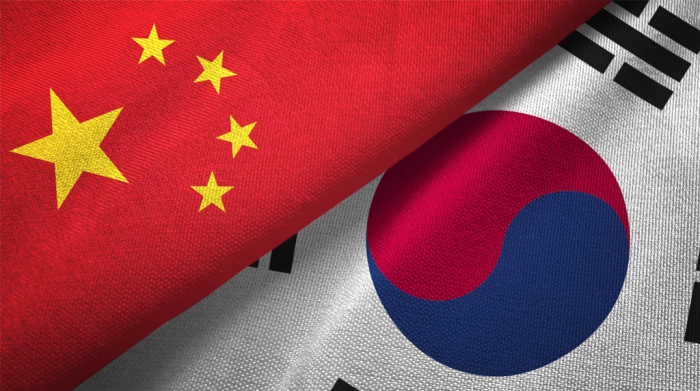
For Korea’s duty-free operators, long squeezed by weak sales, the return of Chinese group tours is a lifeline.
Lotte Duty Free said it is targeting travelers from China’s tier-two and tier-three cities, where visa approvals are relatively complex and take a longer time, while Shilla is bolstering partnerships with mainland agencies.
“We expect more than 10,000 Chinese group tourists to visit our stores in Seoul, Busan and Jeju next month,” said a Lotte executive.
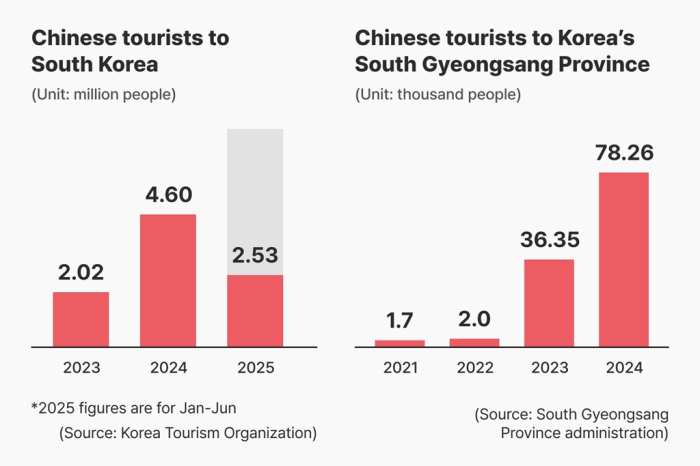
RIPPLE EFFECT SPREADS TO BEAUTY RETAILERS
The ripple effect is already spreading beyond the duty-free business.
CJ Olive Young Corp., Korea’s top beauty retailer, has ramped up inventories in Myeongdong, Hongdae and Gangnam.
Online fashion platform Musinsa is offering 5,000 won in on-the-spot discounts at its Musinsa Standard outlets, as well as digital coupons via Alibaba’s Tmall.
Daiso, the largest discount store chain in Korea, has expanded K-beauty and snack assortments in tourist-heavy locations, while convenience store chains GS25 and CU are competing with Alipay and WeChat Pay-linked promotions.
GS25 has even converted eight stores in areas such as Insadong and Gangnam into “KPop Demon Hunters” collaboration hubs, while CU is marketing its Myeongdong Subway Station outlet as a K-food showcase.
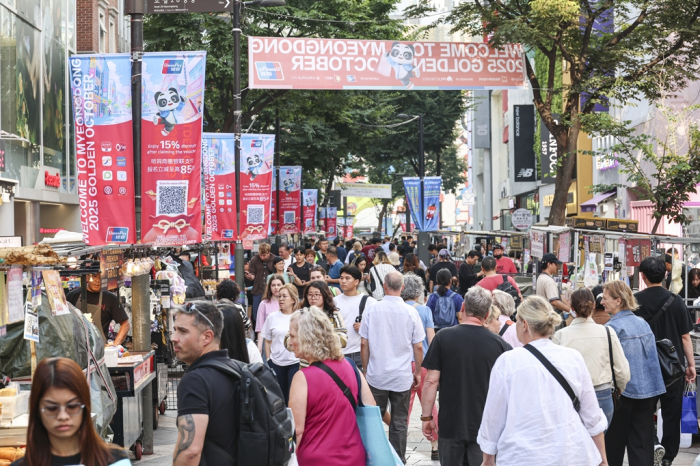
Analysts expect Korea’s visa waiver policy to accelerate, particularly around China’s National Day holiday in October, the return of Chinese tourists.
Industry estimates suggest as many as 1 million Chinese tourists could visit Korea by June next year under the new visa-free regime.
“Retailers see this as the first real tailwind for inbound tourism in years,” said an industry executive. “The big test will be whether the Golden Week crowds turn promise into momentum.”
By Tae-Ung Bae
btu104@hankyung.com
In-Soo Nam edited this article















